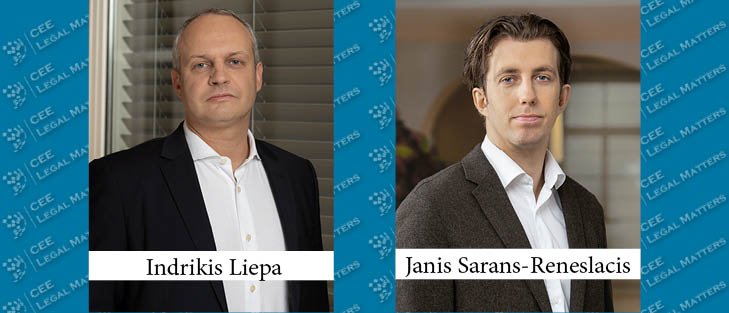Following extensive discussions between industry stakeholders and state institutions, several crucial solutions have been identified to address the problems of drug availability and monitoring control. The primary aim is to ensure wider and faster access to medicinal products for patients in Latvia.
As a result of these collaborative efforts, a proposal for amendments to the existing regulatory framework, under the Cabinet of Ministers Regulations No. 416 “Procedures for the Distribution and Quality Control of Medicinal Products” (Regulation No. 416), has been drafted and is currently undergoing the legislative approval process. Three of the proposed solutions warrant particular attention.
Options for Expanding the Export Ban
The current regulatory framework includes a procedure for prohibiting the export of medicinal products to ensure their availability and to protect the health of Latvian patients (known as the export ban mechanism). This mechanism aims to regulate the volume of exported medicines, thereby improving the availability of essential medicinal products within Latvia. Presently, the regulation permits the export ban only for medicines covered by agreements between the National Health Service and the relevant market authorization holders or wholesalers. However, the State Agency of Medicines has extensively reported that the issue of medicinal product shortages due to excessive exports affects many other categories of reimbursable medicines.
The proposed changes to Regulation No. 416 aim to extend the export ban mechanism to almost all categories of reimbursable medicines. Furthermore, the State Agency of Medicines could identify additional medicines whose absence (actual or planned) or insufficiency in wholesale stock poses a risk to public health, which could prompt a ban on deliveries to EU countries or an export ban as necessary.
Parallel Distribution of Medicinal Products Registered through the Centralized Registration Procedure
The current regulatory framework outlines the responsibilities of wholesalers involved in the parallel distribution of medicines registered through the centralized registration procedure. This applies when the wholesaler is a parallel distributor rather than the manufacturer, registration holder, or authorized representative, and the medicines are sourced from a European Economic Area country. While the regulation provides a detailed explanation and definition of parallel distribution, it does not address situations where manufacturers of centrally registered medicines have not made these products available on the Latvian market, nor are they distributed by parallel distributors, despite patients’ needs. This creates a risk of patients not receiving the medicine prescribed by their doctor in a timely manner.
The proposed changes to Regulation No. 416 aim to implement a mechanism that allows wholesalers to execute a bona fide order for medicines registered through the centralized registration procedure, provided two conditions are met. First, the marketing authorization holder of the centrally registered medicinal products has not commenced distribution in Latvia and they are not available. Second, no available analogs are present in the Latvian market, or the available analogs included in the Latvian Register of Medicines cannot be used for treating a specific patient due to inadequate therapeutic effects or medical indications, including cases where the National Health Service has decided to compensate medicine purchase expenses for individual persons.
Facilitated Accessibility of Compassionate Use Programs
Compassionate Use Programs have been well-known in the industry for years, focusing on groups of patients with chronic or severely debilitating diseases, or those whose disease is considered life-threatening and cannot be satisfactorily treated with registered medicines. It is evident that any delay in the approval of Compassionate Use Programs and the delivery of medicines is critical for the lives of patients.
According to Association of International Research-based Pharmaceuticals Manufacturers, the availability of innovative medicines in Latvia within the framework of Compassionate Use Programs is cumbersome and lengthy, especially compared to Lithuania and Estonia, where the regulatory framework is significantly more relaxed. This is primarily due to Regulation No. 416 defining “compassionate medicines” as gifts, which, in addition to requiring permission from the State Agency of Medicines, necessitates the importation of unregistered medicines to be approved by the Ministry of Health for donation purposes, alongside separate contracts with each hospital. This significantly complicates patients’ access to these programs.
The proposed changes to Regulation No. 416 aim to eliminate the dual monitoring system and the requirement for a Ministry of Health permit as a gift of medicine. Medicinal products for Compassionate Use Programs will no longer be considered gifts, thereby removing a significant barrier to the approval of Compassionate Use Programs.
By Indrikis Liepa, Partner, and Janis Sarans-Reneslacis, Senior Associate, Cobalt
This article was originally published in Issue 11.7 of the CEE Legal Matters Magazine. If you would like to receive a hard copy of the magazine, you can subscribe here.














